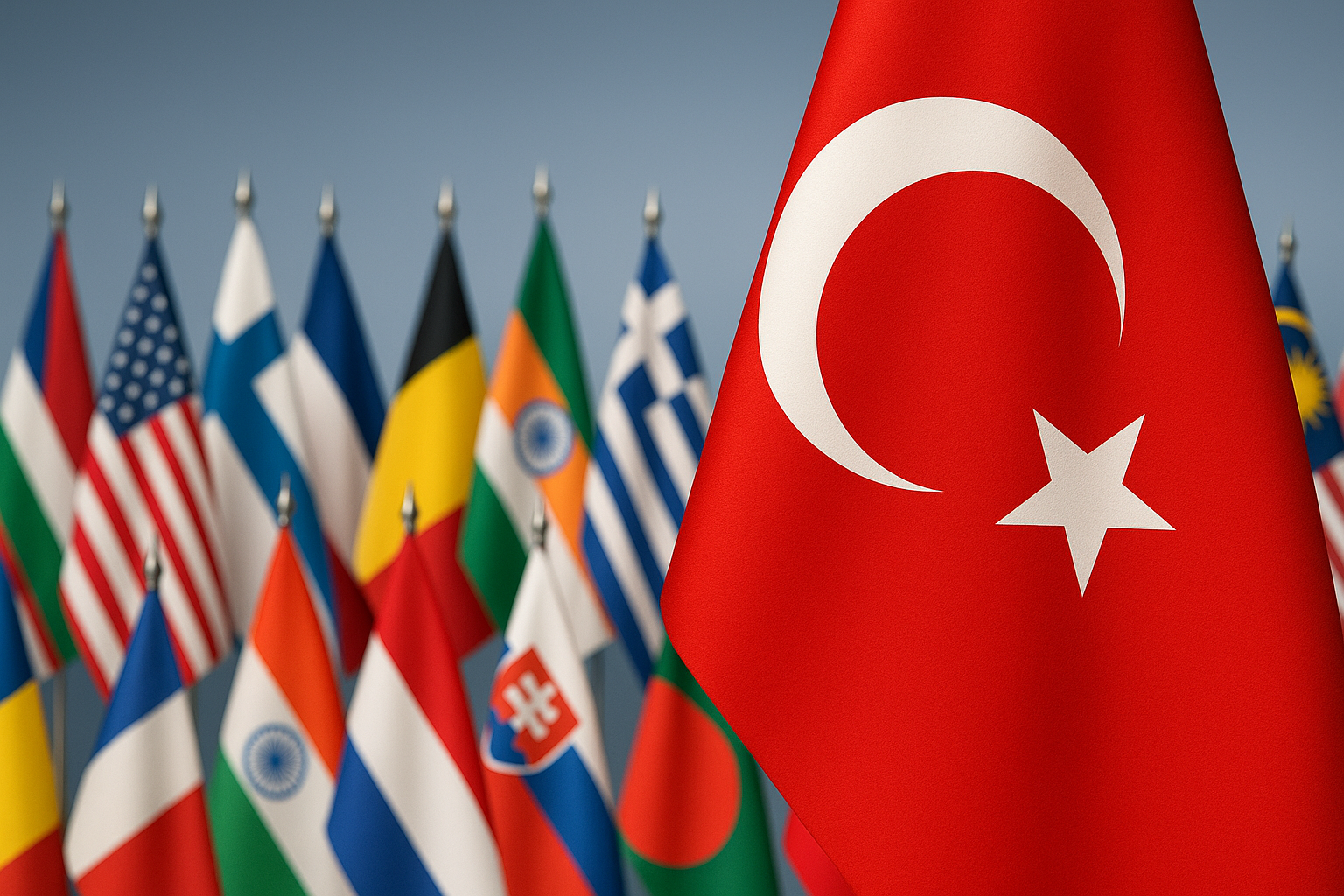
Real estate is a global business. Homes are bought and sold everywhere, investments are made in every market, and agents or consultants are always part of the picture. But here’s the thing: the way the job is done in Turkey is quite different from how it looks in the U.S., Europe, or other parts of the world.
If you’ve ever wondered what sets the Turkish model apart, let’s break it down together. Usta Realty, Usta Gayrimenkul & Emlak Company presents…
Licensing and Entry into the Profession
In many countries, anyone with good people skills can try their luck as a real estate agent. In the U.K., for example, there’s no mandatory national license; you can start by joining an agency and learning on the job. In the U.S., licensing is required, but the path is relatively quick — usually a few weeks of coursework and an exam.
Turkey, on the other hand, takes a more formal route. To become an official real estate consultant here, you need a Level 5 Vocational Qualification Certificate approved by the government, plus registration with the local Chamber of Commerce. It’s not something you just wake up one morning and decide to do; there’s a structured path. This helps set a minimum standard of professionalism across the board.
Commissions and How They’re Handled
One of the first questions clients ask anywhere in the world is, “How much will it cost me?”
In the U.S., commissions are famously high, usually around 5–6% of the property’s sale price, typically split between buyer’s and seller’s agents. In Europe, rates are usually lower, somewhere in the 1–3% range.
In Turkey, the commission structure lands somewhere in the middle. By law, the fee is capped at 4%, usually shared between buyer and seller. That said, transparency can vary from one office to another, and that’s one area where the market is still evolving. For clients, it’s important to work with agencies that make all costs clear from the very beginning.
Representation: Who Works for Whom?
Here’s an interesting difference: in the U.S., it’s common for an agent to represent only one side — either the buyer or the seller. In fact, “exclusive buyer agents” are a whole category of professionals who promise to look out solely for the buyer’s interests.
In Turkey, things are less divided. A single consultant or office can represent both buyer and seller in the same transaction. On the one hand, this can make the process quicker and smoother, but it can also raise questions about conflicts of interest. It’s another reason why trust and reputation are so crucial when choosing who to work with here.
The Missing MLS System
If you’ve ever looked for property in the U.S. or Canada, you’ve probably come across the MLS — the Multiple Listing Service. It’s a centralized database where all licensed agents share their listings, and buyers can access everything through their chosen agent.
Turkey doesn’t have this system. Instead, listings are scattered across different online portals like Hepsiemlak, Sahibinden, or Zingat. Each agency manages its own portfolio separately. This means buyers often have to browse multiple sites and call several agents to see the full picture. For consultants, it means more legwork — but also more room to build personal networks and local expertise.
Local Knowledge Is Everything
Because there’s no single nationwide database, real estate in Turkey is incredibly local. Knowing the right neighborhoods, understanding municipal plans, and even having connections at the local level can make all the difference.
Take Istanbul, for example. Each district — Kadıköy, Beşiktaş, Başakşehir, Üsküdar — has its own market dynamics, price ranges, and buyer profiles. The same goes for Antalya, Izmir, or Bursa. A consultant who thrives in one city may not automatically succeed in another, unless they truly understand the local fabric.
In countries with more standardized systems, agents can often rely on centralized data to fill in the gaps. In Turkey, it’s the opposite: personal experience and community knowledge are what set a good consultant apart.
Foreign Buyers and Citizenship by Investment
Another unique feature of the Turkish market is its appeal to international buyers. Many foreigners purchase homes here, especially in Istanbul, Antalya, Bodrum, and along the Mediterranean coast. Some are looking for vacation homes, while others see it as a smart investment.
But here’s the kicker: Turkey offers citizenship by investment. If a foreign buyer invests at least $400,000 in real estate, they can apply for Turkish citizenship. That’s a huge incentive, and it has no direct equivalent in most Western countries. For consultants, this means not only selling properties but also guiding clients through legal and bureaucratic processes that carry life-changing consequences.
Franchises vs. Independent Offices
In the U.S., big franchise brands dominate the landscape — think RE/MAX, Keller Williams, or Century 21. They provide training, marketing, and technology platforms for agents. While these brands exist in Turkey as well, the market still has a large number of independent offices, often family-run, operating under their own names.
This creates a more fragmented but also more flexible environment. Clients can work with large, international-style offices or smaller, highly personal local agencies. Each comes with its own strengths: the former brings structure and resources, while the latter often brings a personal touch and deep neighborhood knowledge.
Building a Personal Brand
In places like the U.S., top-performing agents often become almost like celebrities — building big personal brands with billboards, social media campaigns, and even TV shows. In Turkey, the industry still leans more toward the office brand than the individual.
That said, things are changing. Social media is giving ambitious consultants new tools to stand out. Instagram, TikTok, and YouTube are now filled with property tours, neighborhood guides, and educational content. Slowly but surely, personal branding is becoming a bigger part of the game in Turkey too.
Wrapping It Up
So, what’s the big picture? Real estate consulting in Turkey is shaped by a mix of formal licensing, mid-range commissions, and a market that leans heavily on local expertise instead of centralized systems. Add in the unique factor of citizenship by investment, and you have a profession that’s both challenging and full of opportunity.
For clients, it means choosing your consultant wisely — someone who not only understands the paperwork but also knows the local dynamics and has your best interests at heart. For consultants, it means staying adaptable, building strong networks, and balancing tradition with modern practices.
At the end of the day, while the rules and systems may differ from country to country, the heart of the profession is the same everywhere: helping people find the right place to build their lives and futures. And in Turkey, doing that job requires a special mix of mastery, patience, and local know-how.
